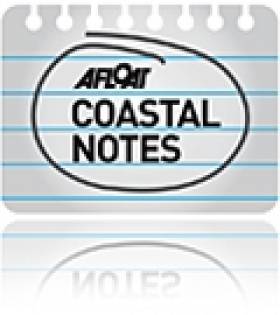Displaying items by tag: dunes
Adapting Beaches and Dunes for Climate Change Funded Under Government Community Programme
Training for communities in preparing Irish beaches and dunes for climate adaptation is one of 18 projects funded under the Government’s community climate action programme.
The project on beaches and dunes is being led by Leave No Trace Ireland, and aims to “build the capacity of local communities to adapt to, and mitigate against, climate change”.
The project leaders say it will develop a toolkit and educational workshops which will “build the knowledge and skills of communities to take positive action on how best utilise beaches and dunes as coastal protection”.
The project is being run as a partnership with the Atlantic Seaboard North Climate Action Regional Office; the Mayo, Sligo and Leitrim Education and Training Board; and University of Galway.
"There is a massive appetite to take action at individual and community levels"
Minister for the Environment, Climate and Communications Eamon Ryan announced the 18 successful recipients of the new €5 million fund under strand 2 of the Community Climate Action Programme in Dublin on Thursday (Oct 27).
The Community Climate Action Programme supports projects and initiatives that facilitate community climate action through education, capacity building and learning by doing.
The programme is being run by Pobal, on behalf of the department.
“There is a massive appetite to take action at individual and community levels,” Mr Ryan said.
“The Climate Conversations 2022, which my Department undertook over the summer to get a sounding on where people are at, found that 83% of participants across Irish society are motivated to take action to address climate change,”he said.
“The range of projects represented in these awards is an indication of this appetite for initiatives that can help communities move towards a more sustainable future,”he said.
“I’m looking forward to seeing the lasting impact the projects will have in empowering communities to change behaviours and habits, and am confident the outcomes will inspire other groups who may wish to participate in further funding strands,” he said.
The 18 projects from around the country were selected from 72 applications, and represent a diverse range of activities across the five programme themes (home and energy; food and waste; shopping and recycling; transport; local climate and environment).
More information on the projects is here
Dirty Dunes a Danger Says Coastwatch
Coastwatch has claimed that a ministerial order for the protection of sand dunes in Co Wexford is being breached, The Irish Times reports.
The order was made in January by former environment minister John Gormley to protect the Tinnaberna dunes from damage due to the storage of cattle over a number of years.
But the environmental group says that "dung, contaminated sediment and massive weed cultures remain" on site, and highlighted concern over its close proximity to a stream which flows into the sea near bathing water.
However, the National Parks and Wildlife service said its ecologist is "happy" with progress made on clearing the dunes.
The Irish Times has more on the story HERE.





























































